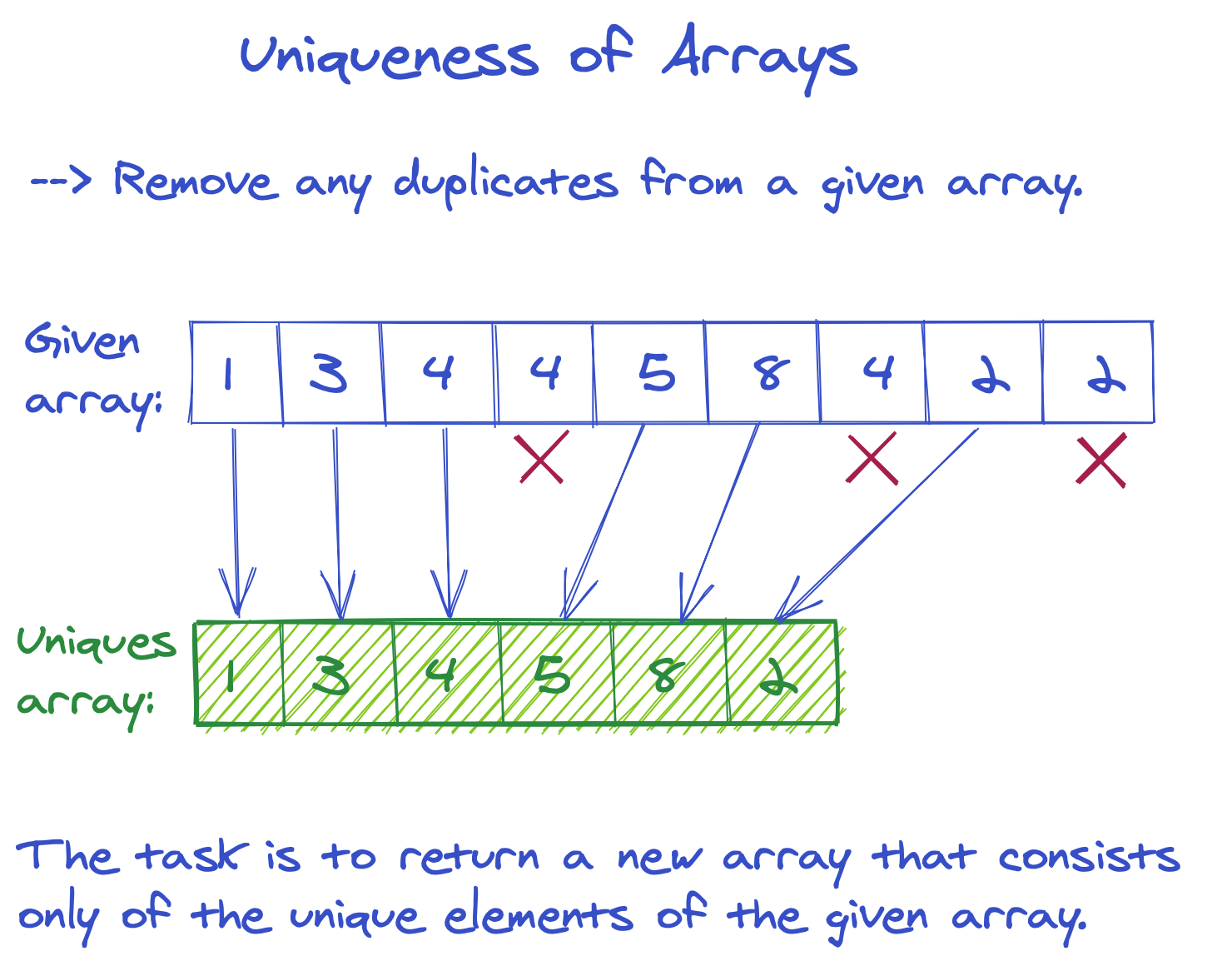Remove Duplicates From Array
 Kashif Umair Liaqat
Kashif Umair LiaqatDisclaimer: Most of the content for problem statement is taken from algodaily.com
Problem Statement
Given an array, return another array with just the ordered unique elements from the given array. In other words, you're removing any duplicates.
Note: Order needs to be preserved, so no sorting should be done. And the order should be maintained with the first occurrence of the element in the given array.

Constraints
- Length of the array <= 100000
- The values in the array between -1000000000 and 1000000000
- Expected time complexity: O(n)
- Expected space complexity: O(n)
Solution
Since the constraints mention that the expected space complexity is O(n). So we could use an additional hash/hash map to keep track of the numbers that have already appeared in the array.
This is how the code will look like
- Initialize the hash object called
already_presentand an arrayresultalready_present = {} result = [] - Iterate on the elements of the original array
arr.each do |number| ... end - If the element does not exist in
already_presenthash then push the element toresultarray because this is the first occurrence of the element. Also, add the same element in thealready_presenthash object so that next time if it appears again, you can skip that.unless already_present[number] result.push number already_present[number] = true end - Once the loop ends, the
resultarray will contain the unique elements from the original array. So just return that.
Final Code
Here is how the final code looks:
def uniques(arr)
already_present = {}
result = []
arr.each do |number|
unless already_present[number]
result.push number
already_present[number] = true
end
end
result
end
Time & Space Complexity
Let's take a look at how efficient this code is in terms of space and time.
- We're iterating over the whole array once so the time complexity will be
O(n)given thatnis the length of the array. - We are also pushing these numbers to the
already_presenthash. In addition to that, we're building aresultarray as well. So, the space complexity will beO(n)
Testing
We can run some unit tests to verify if our code works as expected
p uniques([
8, 8, 15, 6, 19, 7, 12, 6, 6, 3, 13, 9, 15, 14, 1, 13, 4, 11, 16
]) == [
8, 15, 6, 19, 7, 12, 3, 13, 9, 14, 1, 4, 11, 16
] # => true
p uniques([9, 9, 9, 9, 9, 9]) == [9] # => true
p uniques([1, 2, 3, 4, 5, 6]) == [1, 2, 3, 4, 5, 6] # => true
p uniques([6, 5, 4, 3, 2, 1]) == [6, 5, 4, 3, 2, 1] # => true
Subscribe to my newsletter
Read articles from Kashif Umair Liaqat directly inside your inbox. Subscribe to the newsletter, and don't miss out.
Written by
